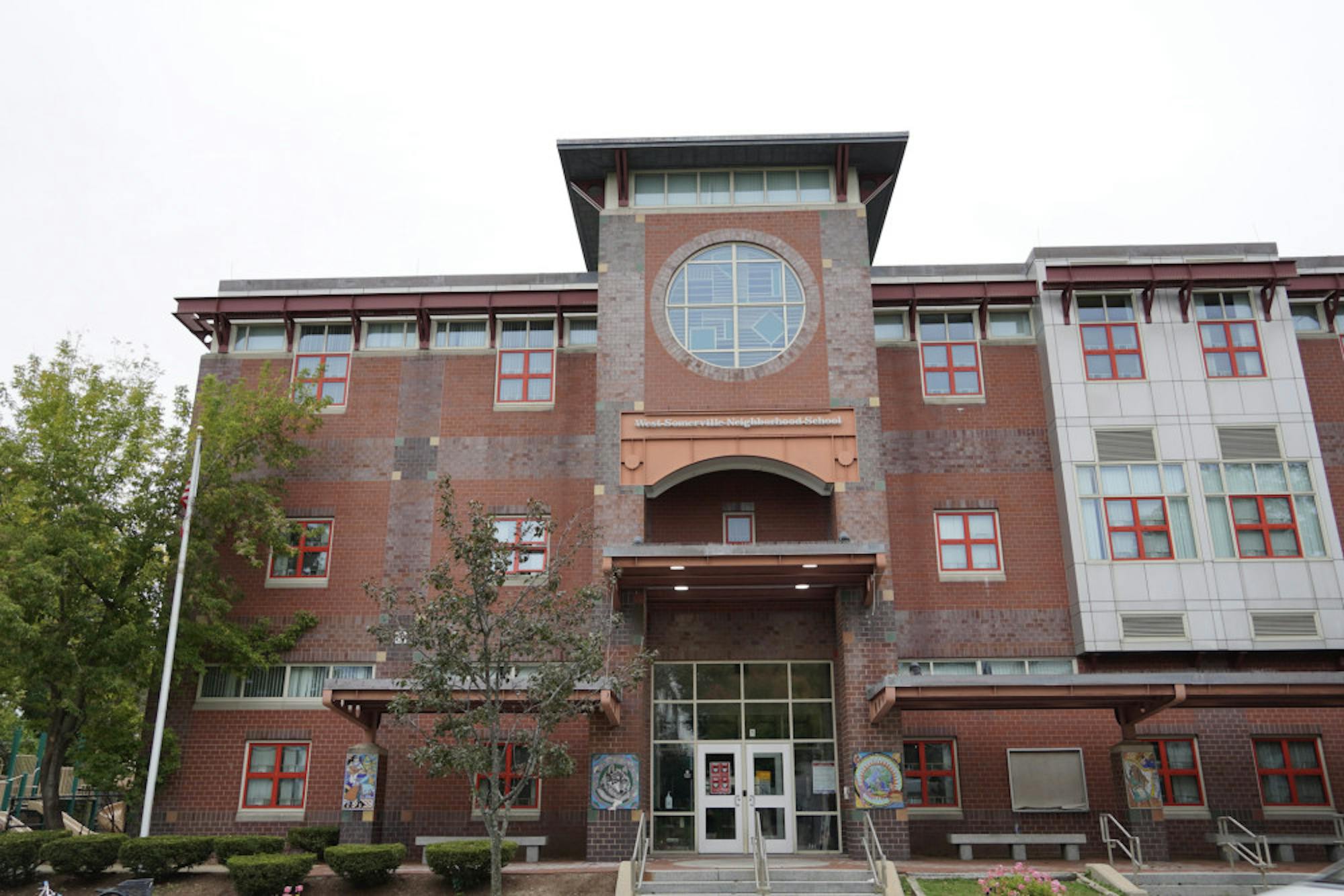After community discussion on how Medford and Somerville public school students should return to classes this fall, both districts implemented the Massachusetts Department of Elementary and Secondary Education's policy mandating return to in-person, full-time instruction.
After DESE’s decision to end hybrid or virtual school modalities for the majority of its students, discussions in Medford and Somerville quickly turned to determining what a return to in-person instruction should look like.
Both communities have sought to find balances between returning to pre-pandemic instruction and protecting student mental and physical health. Jeff Curley, chief of staff for Somerville Public Schools, shared what has shaped reopening discussions among Somerville community members.
“As in every community, people were in different places in terms of their comfort level with a return to full in-person learning," Curley wrote in an email to the Daily. "On any issue, our role is to listen intently and thoughtfully, and to ultimately make decisions that we feel are in the best interest of all our students and staff. Safety [is] always at the center of our decision-making process, as well as ensuring that we follow state and federal guidelines."
A similar sentiment was echoed in Medford. David Murphy, assistant superintendent for operations and finance for Medford Public Schools, explained the importance of the district's return to in-person instruction.
“We know that it's in the best interest of students to get them into school, to restore as much as possible a sense of normalcy and to provide the academic, social and emotional supports that are supposed to be what a K-12 educational experience is about," Murphy said. "We can't do that with full effectiveness in a virtual learning environment … There is something significant that is lost in the educational experience when students are not in person.”
In part, access to Tufts' testing resources has made a return to in-person instruction easier for Medford and Somerville students. The partnership between Tufts, Medford, Somerville and the Broad Institute allowed public school students access to COVID-19 testing at a fraction of the normal cost, helping both districts identify and limit the spread of COVID-19 in classrooms.
Andre Green, chair of the Somerville School Committee, highlighted that the districts' partnership with Tufts is building trust with communities that a return to in-person instruction would be possible.
“[Somerville] was able to have the most robust testing regime, certainly in the state and probably in the country last year ... and that also helped build confidence in the system,” Green said.
Building trust in communities became a critical part of both districts' reopening processes. The formation of that trust, Green added, has been important as both cities seek to equitably reopen their schools.
“If you look back last year at schools [which] reopened throughout the school year last year, it was a nationwide constant, that when schools came back, white families came back at a higher proportion than Black and [Latinx] families," Green said. "I think for a lot of districts, there's a very real fear of having a separate but equal district, where we add a remote district for Black and Brown students, and an in-person one for white students. That was still a fear, even as we got to a place where it starts to feel more and more that we come back in person."
According to Murphy, equity became a critical lens for making decisions about the 2021–22 school year in Medford as well.
“By maintaining a degree of structure within the school environment, we are able to alleviate some of the inequities that are grounded in society," Murphy said. "Our responsibility is to maintain an environment that regardless of the circumstances under which a student is growing up, and regardless of what challenges may exist with regard to that student being able to learn, our charge is to eliminate those barriers and to position every student to maximize their potential.”
In addition to equity considerations, students' mental and emotional well-being also became a driving factor in returning to in-person instruction. That principle was one Christine McWayne, a child study and human development professor, hoped would be centered.
“Much of the burden of these changes to education during COVID-19 has fallen on children themselves. I think we underestimate the toll this is taking in our communities and on our children," McWayne wrote in an email to the Daily. "A focus on ensuring the physical safety of everyone is clearly paramount, but we cannot forget to attend to the well-being of the whole child."
Somerville Public Schools teacher Tara Beardsley experienced firsthand the toll the pandemic took on students' social and emotional health while teaching her students virtually last year.
“[Students] were really having a hard time," Beardsley said. "They messaged me all last year, and we talked about it over Zoom, and they'd [say], ‘We're so depressed; we just want to be back in school.’
With students already having returned to classes over a month ago, Beardsley has already seen students' mental health rebound.
“[Students] are genuinely so happy and ... they haven't been this happy in a year and a half," Beardsley said. "Kids feel like themselves again, feel like they have a place and feel that belonging. It just makes it worth it."
Allison Kase, another Somerville Public Schools teacher, voiced a similar sentiment.
“I think it's so impressive, the resilience that our students have," Kase said. "They're so happy to be back in school overall.”
With the first month of full in-person instruction passing earlier this October, Beardsley acknowledged that her district will require time to adjust to this return to normal.
“Are [students] going to struggle? Of course they're going to struggle, but in general I think they're feeling like things are returning to normal and they feel safe ... and they're happy," Beardsley said. "It's just nice to see them being kids playing at recess and being silly. I think that the learning is going to come, it's just going [to] take a bit.”






